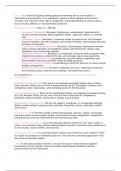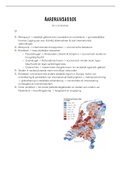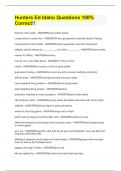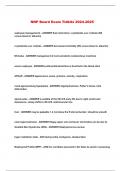Resume
Summary Examen woordenscht - Legal English
- Cours
- Legal English
- Établissement
- Universiteit Hasselt (UHasselt)
Dit document is een samenvatting van de woordenschat die gevraagd zal worden op het examen van Legal English. De woorden zijn opgesomd geweest door de tutor van het vak en zullen op het examen weergegeven worden adhv een tekst die je moet voorbereiden. (de tekst kan je ook terugvinden) De woorden z...
[Montrer plus]












